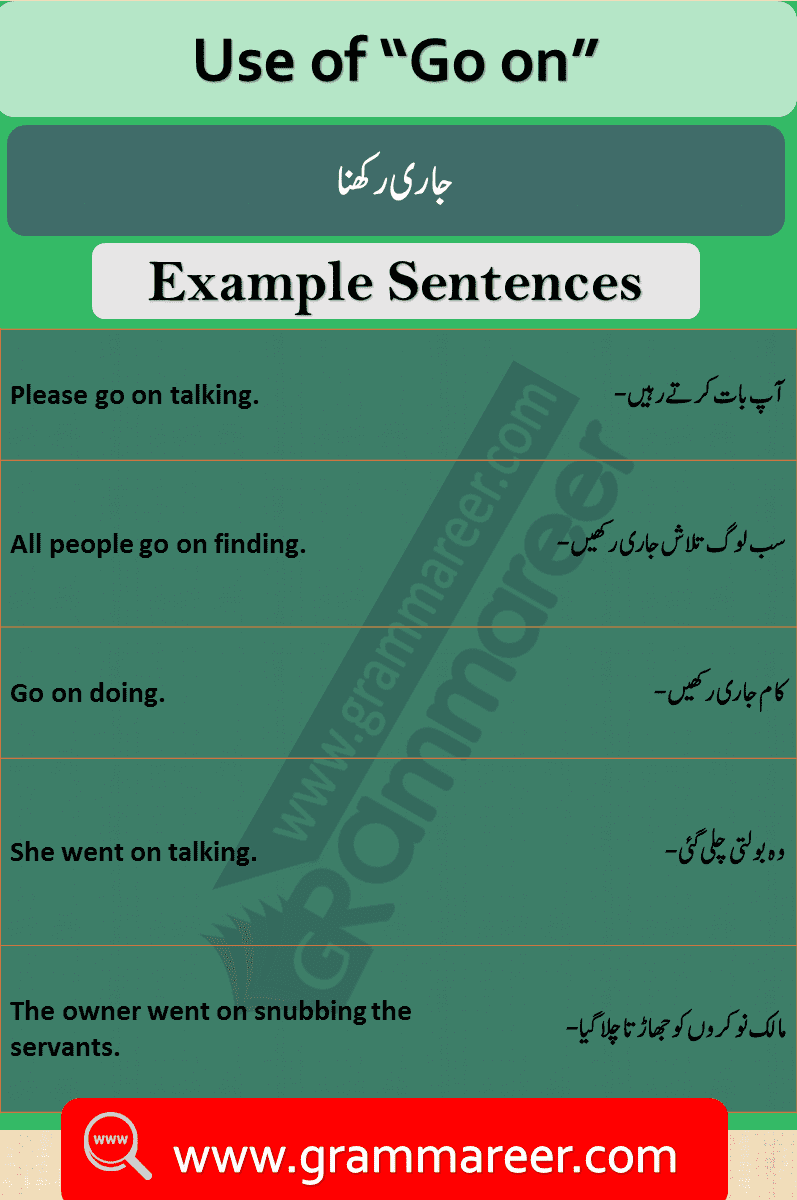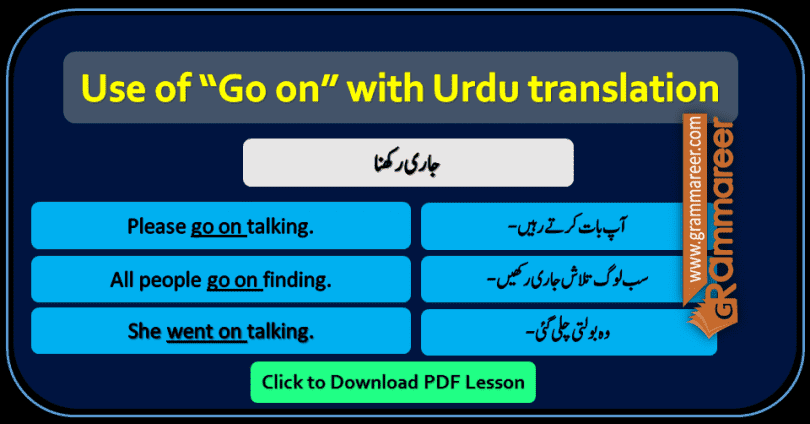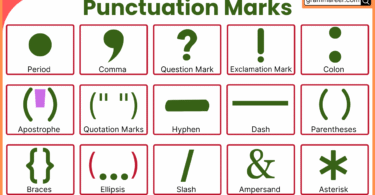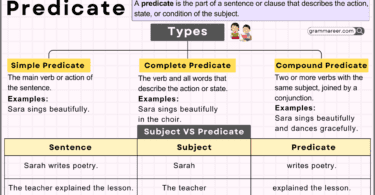Go on is a common phrasal verb used in daily English to express continuation, encouragement, or starting something. In this blog post, you’ll learn its different meanings with simple explanations in Urdu. Whether you’re talking about ongoing actions or urging someone to proceed, mastering this verb will improve your everyday communication. Start practicing more with our Spoken English examples.
Table of Contents
Use of Go On in English and Urdu
Go on = جاری رکھنا
In English, the phrase “go on” is a phrasal verb that means to continue doing something. It is often used in conversations to express the idea of persistence, continuation, or to encourage someone to proceed. In Urdu, it translates to “جاری رکھنا” or “کرتے رہنا“. This phrase is used in different tenses, and when speaking in the past, we use “went on” instead of “go on”.
✅ Use of “Go On” (Present/Future Tense)
This is used to ask or advise someone to continue what they are doing.
Examples:
- Please go on talking.
آپ بات کرتے رہیں۔ - Go on doing your work.
اپنا کام جاری رکھیں۔ - All people go on finding.
سب لوگ تلاش جاری رکھتے ہیں۔ - Some people go on dreaming.
کچھ لوگ خواب دیکھتے چلے جاتے ہیں۔ - Children go on playing even when it’s dark.
بچے اندھیرا ہونے کے باوجود کھیلتے رہتے ہیں۔
✅ Use of “Went On” (Past Tense)
This is used when the action continued in the past.
Examples:
- She went on talking.
وہ بولتی چلی گئی۔ - He went on walking in the rain.
وہ بارش میں چلتا رہا۔ - The owner went on snubbing the servants.
مالک نوکروں کو جھاڑتا چلا گیا۔ - They went on working without a break.
وہ بغیر رکے کام کرتے رہے۔ - The teacher went on explaining the topic.
استاد موضوع کی وضاحت کرتا چلا گیا۔
📝 Grammar Note
- “Go on + verb+ing” is used to indicate continuation.
Example: He goes on working late at night. - “Go on to + verb (base form)” is used to indicate doing something different afterward.
Example: He studied hard and went on to become a doctor.
🔄 Negative Sentences
When we negate sentences with “go on,” we usually use do/does not in present and did not in past.
Examples:
- We did not go on roaming.
ہم پھرتے نہیں رہے۔ - He doesn’t go on helping others.
وہ دوسروں کی مدد کرتے نہیں رہتا۔
📚 Summary
The phrase “go on” is a versatile expression used in everyday English. Whether you’re encouraging someone to continue or describing a past ongoing action, understanding this phrasal verb can help you speak naturally and confidently.

Download PDF
You May Also Like





